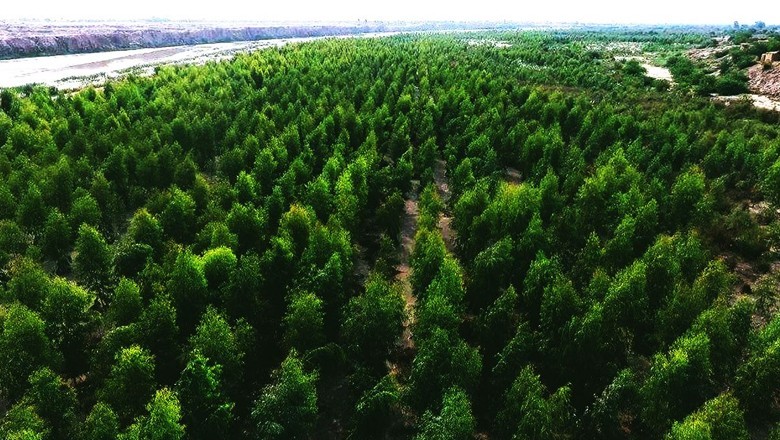Khyber Pakhtunkhwa (KPK), once known for its lush green forests, is now at the center of a massive deforestation scandal. Illegal logging in Arandu Gol, Chitral, has resulted in a staggering loss of 8.6 billion rupees, a direct blow to Pakistan’s already struggling economy. This isn’t just an environmental disaster; it’s a policy failure of epic proportions.
Arandu Gol, home to some of the most valuable timber species like Deodar, Fir, and Spruce, is being plundered at an alarming rate. These forests, which took centuries to grow, are being wiped out in a matter of months.
The government’s failure to curb illegal logging is not just a loss of revenue it is a loss of biodiversity, a disruption of local ecosystems, and an acceleration of climate change.
The 2016 policy change under KPK’s government should have tightened regulations. Instead, it opened the floodgates for more corruption. The policy allowed confiscated timber to be returned to its original owners at heavily discounted rates, encouraging more illegal logging rather than deterring it.
Worse, nearly 750,000 cubic feet of confiscated timber was never auctioned, leading to billions in lost revenue. How does such negligence go unpunished? Who benefits from these loopholes? The answers remain buried under layers of bureaucracy and political maneuvering.
While the provincial government makes lofty claims about environmental protection, the timber mafia continues to operate with impunity. Smugglers have found allies within the very institutions meant to regulate them. Reports suggest that certain officials within the KPK Forest Department not only ignored the illegal trade but may have facilitated it.
If these policies were genuinely meant to stop deforestation, why is KPK’s forest cover shrinking at an unprecedented rate? Why do local communities, who rely on these forests for their survival, feel abandoned?
The Pakistan Tehreek-e-Insaf (PTI) government once prided itself on its Billion Tree Tsunami project, a flagship initiative aimed at restoring Pakistan’s green cover.
However, what is the point of planting a billion trees when millions are being cut down due to weak enforcement? This contrast between claims and reality raises serious concerns about whether these environmental projects were ever about conservation or just political optics.
The 8.6 billion rupees lost due to illegal logging is just the financial damage. The real cost is far greater. Environmental degradation is accelerating, leading to soil erosion, landslides, and loss of biodiversity.
The water crisis is worsening, as forests play a crucial role in maintaining water tables. Thousands of people in KPK rely on forests for their survival, and their future is now at risk.
Authorities need to take immediate action. Corrupt officials within the Forest Department and policymakers responsible for these losses must be prosecuted. Forestry policies must be reformed with strict logging regulations instead of creating loopholes that benefit timber smugglers.
Local oversight should be strengthened so that communities protect their own resources instead of allowing external profiteers to take over. There must be full transparency in the timber trade, with every cubic foot of wood accounted for and all auctions held publicly.
KPK’s forests are not just a provincial asset they are a national treasure. If billions can be lost without accountability, what hope is there for the future of Pakistan’s natural resources? Unless the government acts decisively, this won’t be the last environmental scandal. The question remains: Will the authorities act, or will the forests continue to fall?


